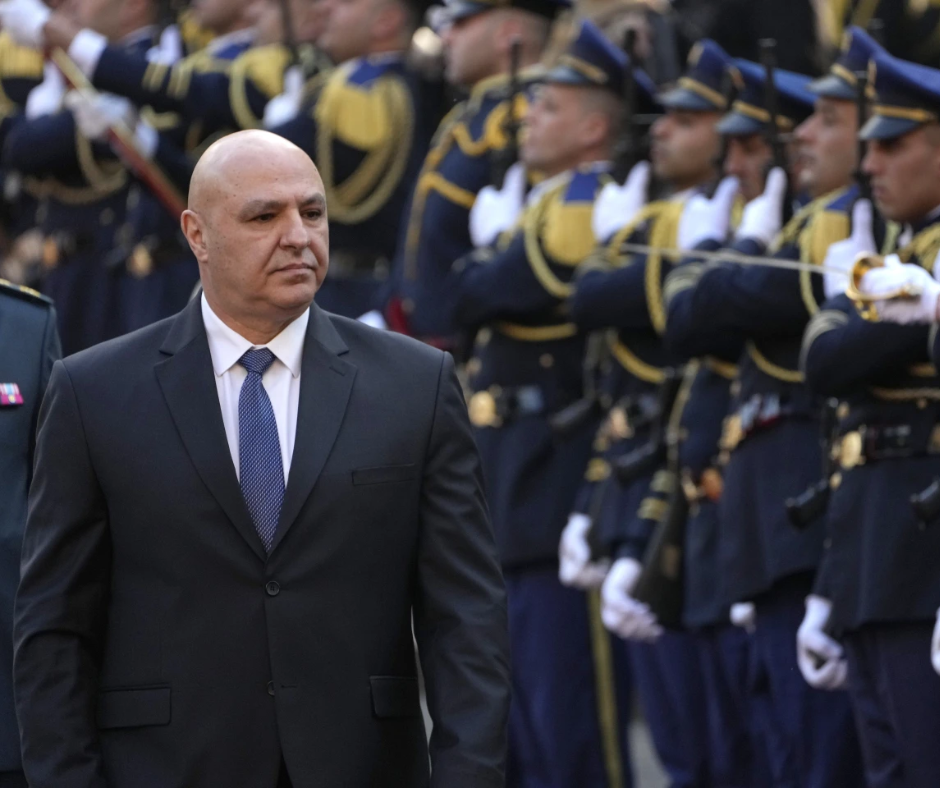Written by the dia-LOGOS Field Reporter Lebanon
Joseph Aoun is seen as a stabilizing figure, poised to restore Lebanon’s sovereignty, unify its fragmented political system, and address the country’s economic crisis. However, his presidency comes at a time when Lebanon is also grappling with political fragmentation and the influence of powerful armed groups, particularly Hezbollah.
Joseph Aoun’s Promises to Lebanon
Internal Support and Hezbollah’s Opposition
Key Challenges for President Joseph Aoun
Lebanon’s Christian Legacy: A Unique Role in the Middle East
In these challenging times, Aoun’s leadership offers hope for the protection of Lebanon’s Christian heritage, which stands as a beacon of religious coexistence in a region where Christians are often marginalized. His leadership is vital for ensuring Lebanon remains a place of religious pluralism and tolerance.
The International Perspective: A Global Challenge
Regional Dynamics: Lebanon’s future is also shaped by the influence of regional powers, especially Iran. Through its alliance with Hezbollah, Iran maintains significant influence in Lebanese politics, complicating efforts to restore Lebanon’s sovereignty. The Gulf States, while hopeful for Lebanon’s stability, remain concerned about Hezbollah’s growing role and its impact on Lebanon’s future.
The Need for Prayer and Support
For President Aoun’s Leadership: Pray that God grants him wisdom, strength, and courage to navigate Lebanon’s complex challenges.
For Lebanon’s Economic Recovery: Pray for swift and effective reforms that will restore hope and stability.
For Peace and Unity: Pray for Lebanon’s divisions to heal and for peace to replace sectarianism and conflict.
For the Church in Lebanon: Pray for the Church to continue being a light of hope in these difficult times.
A Nation in Need of Restoration
Lebanon in the Bible: A Land of Divine Purpose
It is no coincidence that Lebanon, the land where Jesus performed His first miracle at the wedding in Cana (John 2:1-11), holds a special place in God’s heart. In that moment, Jesus transformed water into wine, turning a crisis into an extraordinary blessing. This miracle speaks to the very heart of Lebanon’s current situation, a nation that, like the guests at the wedding, is in desperate need of transformation and renewal.
Just as Jesus intervened in Cana, offering new hope and a fresh beginning, we believe that Lebanon too can experience a spiritual and national rebirth. It is a reminder that no situation is beyond His redemptive power. It is a promise that the divine touch of restoration is available to Lebanon, and that God, who has blessed this land with His presence, will continue to be a source of healing, hope, and renewal.
Some verses about Lebanon
Psalm 104:16 “The trees of the Lord are well watered, the cedars of Lebanon that He planted.”
Hosea 14:6 “His shoots will sprout, and his beauty will be like the olive tree, and his fragrance like the cedars of Lebanon.”
Song of Solomon 4:15 You are a garden spring, a well of fresh water, and streams flowing from Lebanon.”
Psalm 92:12 “The righteous will flourish like a palm tree, they will grow like a cedar of Lebanon.”
Song of Solomon 4:11 “Your lips drop sweetness as the honeycomb, my bride; milk and honey are under your tongue; the fragrance of your garments is like the fragrance of Lebanon.”

